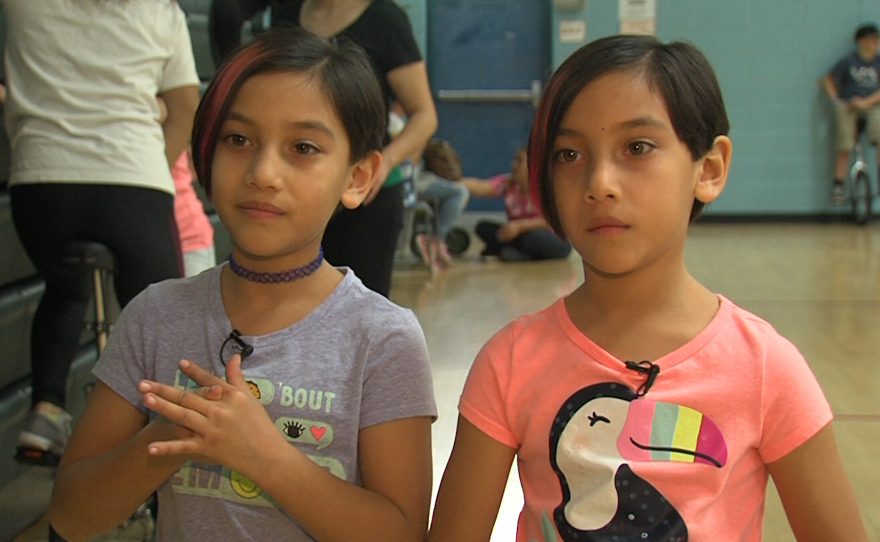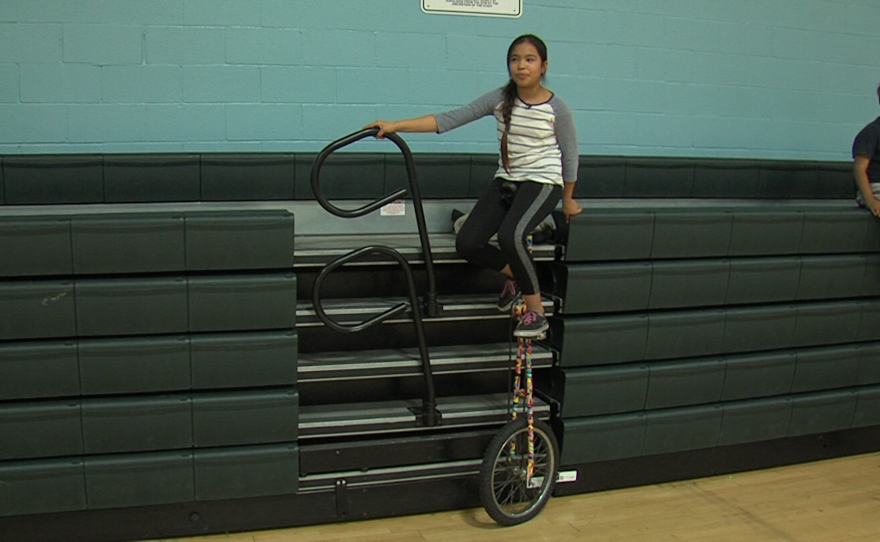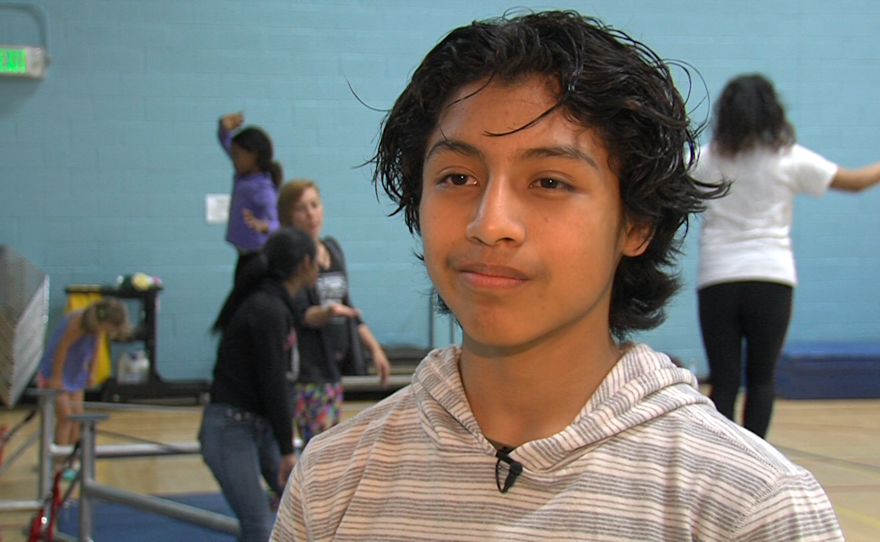Tight wire, tumbling, unicycle, juggling and clowning may not be skills normally associated with serious social and emotional development, but a new study released in January is changing that.
The Weikart Center for Youth Program Quality found that at-risk children in circus programs across the country showed considerable growth in areas such as emotional knowledge, goal pursuit and social skills.
City Heights-based Fern Street Circus was one of eight programs included in the study.
“Circus combines art and sport for young people. Not only do they have an opportunity to sequentially gain skills that are very specific and have clear marketing points, but it's also a creative activity,” said Fern Street Circus co-founder John Highkin.
Highkin was eager to participate in the study. He hoped the study would give credibility to what he has believed since starting Fern Street in 1990: that it is not all just fun and games.

“We know implicitly that the programs, the after-school programs that Fern Street Circus has done for many years have an impact on the lives of the children, teens and families with whom we work. We know this, we've got anecdotal evidence of it, but we haven't had quantitative evidence,” Highkin said.
Fern Street Circus’ after-school program first ran from 1993 to 2011 in Golden Hill, and relaunched in 2015 at the Mid-City Gym in City Heights. They allow up to 50 kids in the classes, which run year-round on Tuesday and Friday evenings. It’s free of charge — for a reason.
“Our materials that we put out are generally in English, Spanish and at times also Somali, and we market it to this neighborhood so we can serve families who otherwise would not be able to afford instruction from professional artists,” Highkin said.

Twin 7-year-olds Brianna and Abigail Castellanos said they would not be able to come if it was not free.
“Because we have little bits of money. And what if it was a lot? We wouldn’t have the money to go,” Brianna said.
Their mom, Tina Nauta, also sends her 10-year-old Lily to Fern Street Circus, and she plans to enroll her 4-year-old as soon as he is old enough.
“I would not have been able to afford three kids into a program, especially like this, with everything they do,” Nauta said.
She said Abigail used to be especially shy, but now, “They just became more social, more outgoing.”
The study looked specifically at Social Circus programs like Fern Street — circuses specifically aimed at helping at-risk youth with issues such as social isolation, trauma, violence and lack of access to arts and cultural activities.
Commissioned by the American Youth Circus Organization, AYCO, it assessed 112 students ages 6-18 who participated in one of eight Social Circus after-school programs over a nine-month period.
An independent evaluator made observations and surveyed all the students during multiple visits.
Highkin said of the evaluator’s visits, “he had the older kids do really long surveys. Some of this stuff was fairly laborious, but in the end everybody cooperated.”
The Weikart Center compared the findings to a group of more than 350 other after-school programs. The results were striking.
Social Circus programs outperformed other after-school programs with a long history of work in social and emotional learning. Circus students who previously struggled with social and emotional skills showed marked improvement. One example: the percentage of circus youth struggling to demonstrate self-regulatory skills dropped from 53% to 19% over the nine-month study.
Highkin was not surprised by the results. He has seen kids grow in ways far beyond their athletic abilities.
“Being able to work more effectively with others, with peers, and have a direct connection with adults as mentors: all of those ricochet through the rest of how a student, a young person goes about her or his life,” Highkin said.
“Each of us has our success stories. The kids who, who have grown up and, and say to us, ‘you've changed my life,’“ Highkin said. “And now we've got the quantitative evidence that says, yes indeed you do that. So it's not just touchy-feely testimonials. But in fact, it's hard numbers. And for a lot of people, policymakers, funders, community leaders, they want to see hard data that says we make an impact.”
The AYCO study is the first national look at multiple circus programs simultaneously, which Highkin said makes the results groundbreaking for his industry.
“We in circus want to make sure that we are recognized along with other arts education offerings that happen nationwide,” Highkin said. “We’re an important component of arts education. We are as important in terms of the impact we make as theater, dance, music, visual arts.”

Highkin hopes the study will matter to donors, so Fern Street can raise enough money to continue the after-school program free-of-charge, indefinitely. That would mean a lot to kids like Joyner Elementary fifth-grader Cinthia Cruz. She recently mastered the five-foot “giraffe.”
“It’s a really tall unicycle and at first I was really scared,” Cruz said. “I think I learned that I didn't have to give up because I really liked persevering and unicycling. I thought it was really cool, and every time I go to school I'm excited because I come to circus.”
Fourteen-year-old tight-wire wiz, Arany Ramirez, is helping start a circus club at Thrive Public Schools, where he’s in eighth grade. At first, he was not sure he would like the program.

“I actually made a lot of friends with communication, and I also tried to help. And the more I helped, the more I became useful in this program, Ramirez said. “I did become more athletic, and it did increase my enthusiasm. I guess my grades have gotten better."
If the study helps them raise enough money, Highkin has a long-term dream: a permanent circus community center in City Heights, where free classes and performances can bring arts, and social and emotional learning to many future generations of children.






